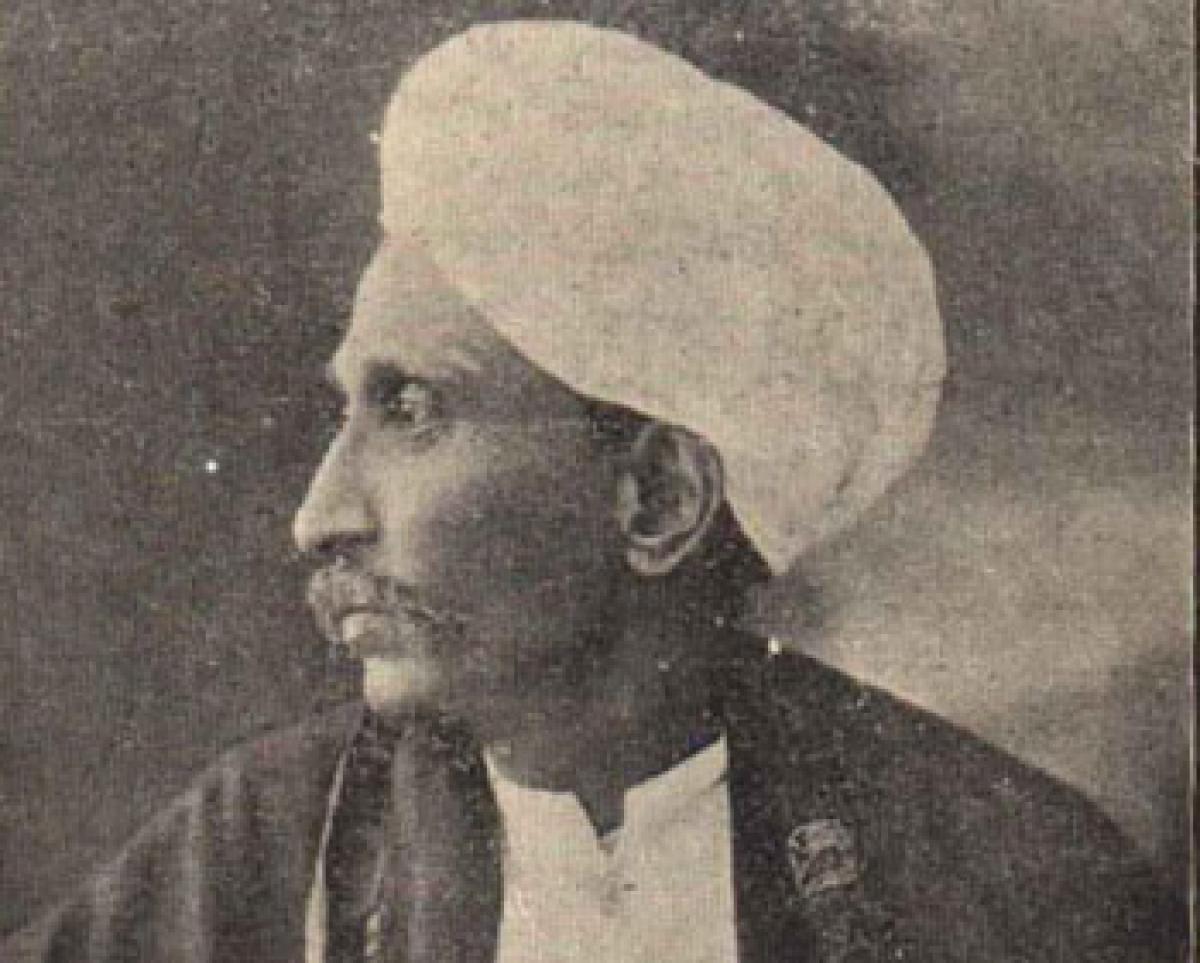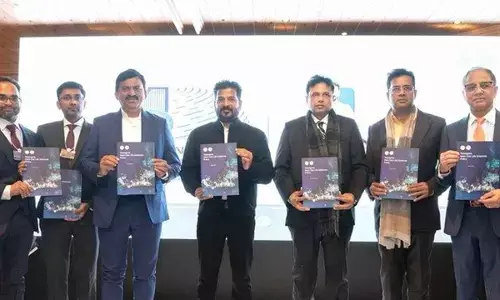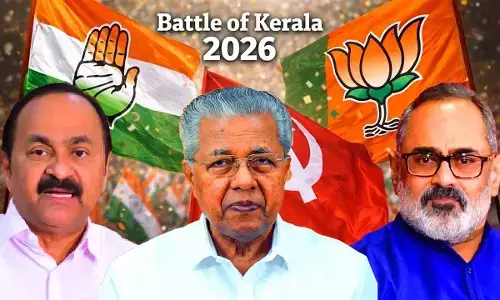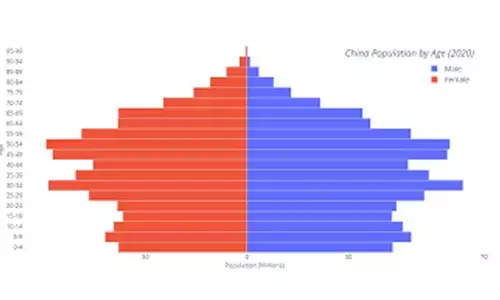The legend lives on

Desamunu Premimchumannaa!” written back in 1910 is still celebrated for its significance and eminence. Despite having much to celebrate from Gurajada Apparao’s reservoir of works, this time-tested song stands as a perfect one to commemorate the great poet and writer
2015 marks the death centennial of Gurajada Apparao
“Desamunu Premimchumannaa!” written back in 1910 is still celebrated for its significance and eminence. Despite having much to celebrate from Gurajada Apparao’s reservoir of works, this time-tested song stands as a perfect one to commemorate the great poet and writer
Gurajada Venkata Apparao, popularly known and fondly referred to as Gurajada, has truly receded a century back into the nimble footed past.
His sesquicentennial celebrations were just held three years ago in 2012, and now since he died almost mid-way of life at the age of 53, in 1915, his death centennial came rushing on November 30 this year.
Although his fictional output is less than five hundred pages, the study, research and analysis that have gone into his writings, life and times he lived in have exceeded thousands of pages by dozens of scholars, researchers and scholars, and also by sociologists.
His writing has remained the main source to understand colonial India in the Kalingandhra region. His song, “Desamunu Premimchumannaa!” (Love, the country, pal) written in 1910, but published only in 1912 remains even today, claiming the exalted status as “Song of Man”, since the same can be sung in any nation, in their native tongue, and once translated, it defies geographical confines and limitations.
Though many poets, bards and laureates have penned down songs eulogising their lands, listing out the historic highs and geographical greatness, not one song of these writers can come anywhere near the theme, design, execution and wider canvas that Gurajada has adapted in the song “Love the country, pal”. The significance of this song lies in its global character, universal nature, and international spirit.
Desamu (country), Gurajada mentioned, can be any country on the atlas, and the citizens of the nations can adapt the stanzas into their language, and can own the lyric. Such ISO standard of human life was visualised much earlier, than the present standardisation initiative in many spheres of modern society. Subsequent poets of great eminence like Sri Sri said that even if Gurajada’s entire writings are lost, just on the credentials of the song “Love the country, pal”, alone, Gurajada can claim his status among the all-time greats of literature in the honours gallery of the world.
The song, in its entirety comprises of 14 stanzas, with no repetitions. Each stanza caters to a specific sector, and encourages the citizens to attain progress and reach the targets, so that they can raise their heads with pride and dignity among the comity of nations. The Vedic thought of tolerance and collective growth, the Buddhist gems of non-violence and co-existence, the Christian virtues of mercy and peace, the Islamic wisdom of collective gain, and common faith, the Bahaullah’s sayings of “glory not in the love of soil, glory in the love of man” all roll into a melody and come out with gusto and zest from the stanzas of this time-tested song.
Though there was much to celebrate in the oeuvre of Gurajada, like Kanyasulkam, his first modern play (1892 first version), and 1909 (the revised version) and work of literature in Telugu to usher in the changing times, his stories and his later poems (1910 and afterwards), and his ‘Note of Dissent’ (1914) submitted to the University of Madras, as a Member of the Telugu Composition Committee, this “Love the country, pal” has achieved eminence like the “Song of the International” and in true sense surpasses war time strife to peace time progress. In the year of his death centennial, a translation of this song, which is also now 105 years old, is presented, to make the observance ore befitting.
By:Rama Teertha
The writer is a poet, translator, literary critic and an orator ([email protected])
Next Story

















